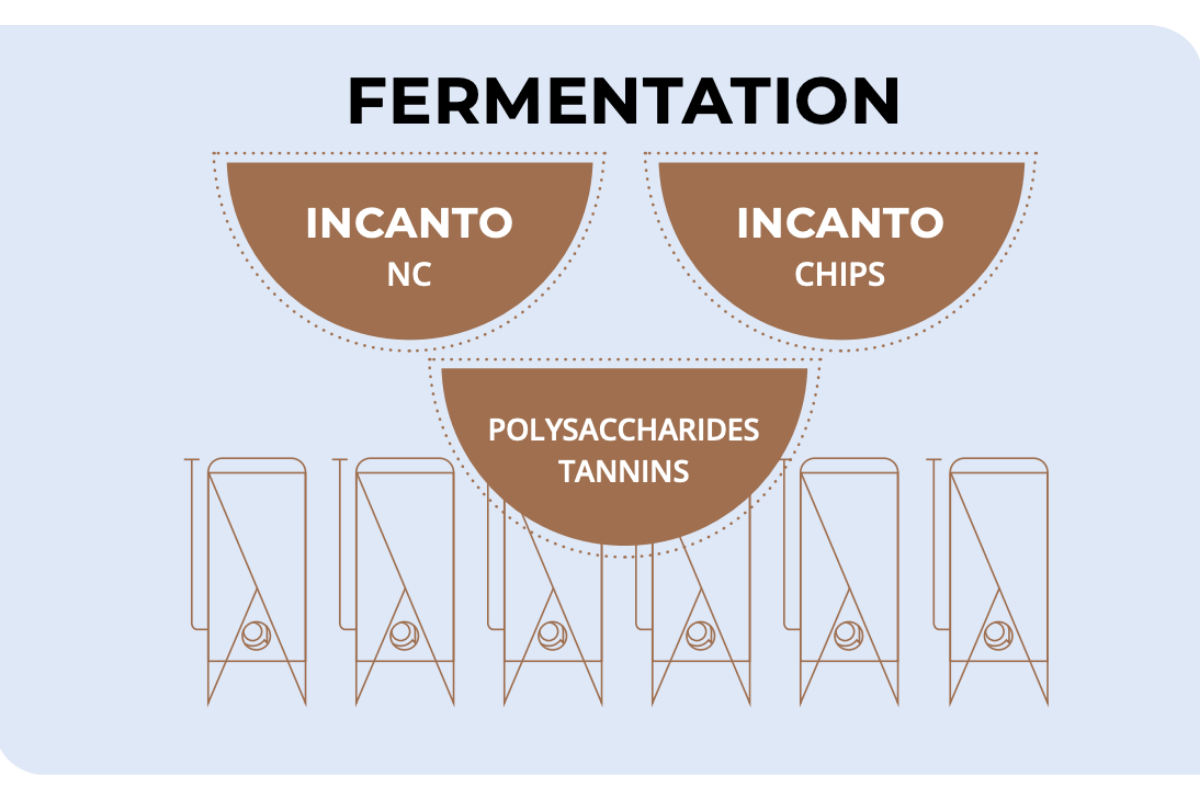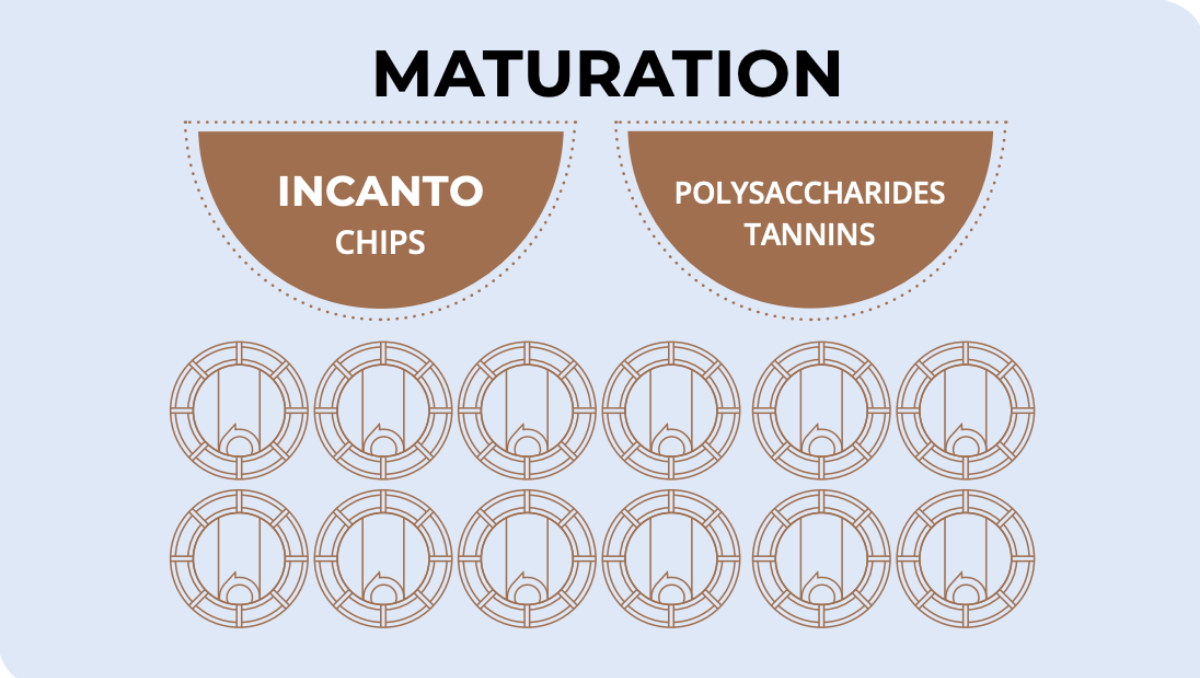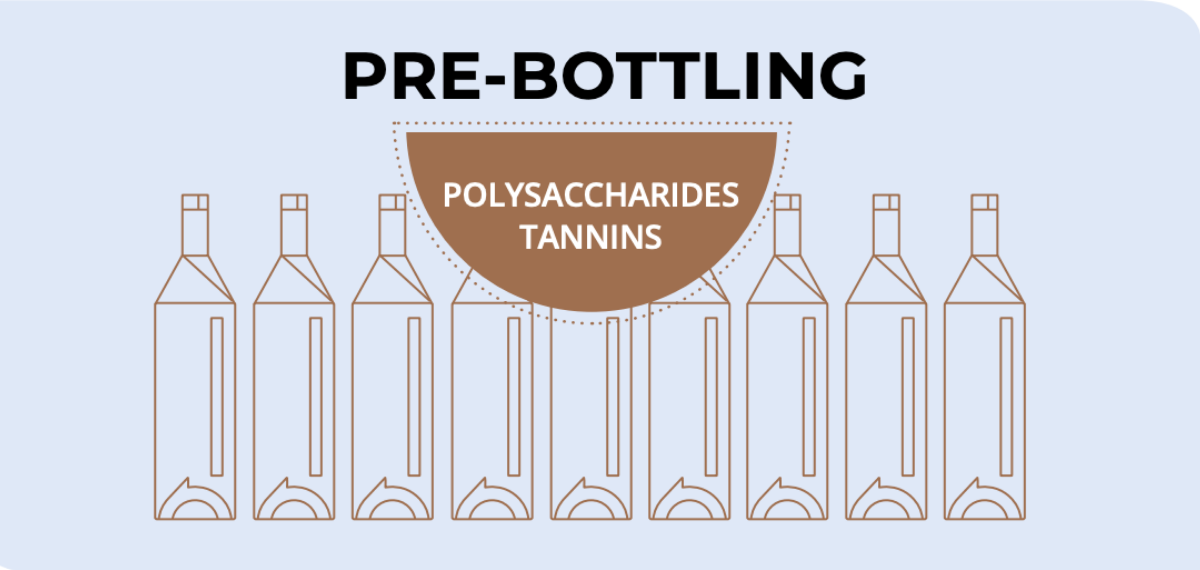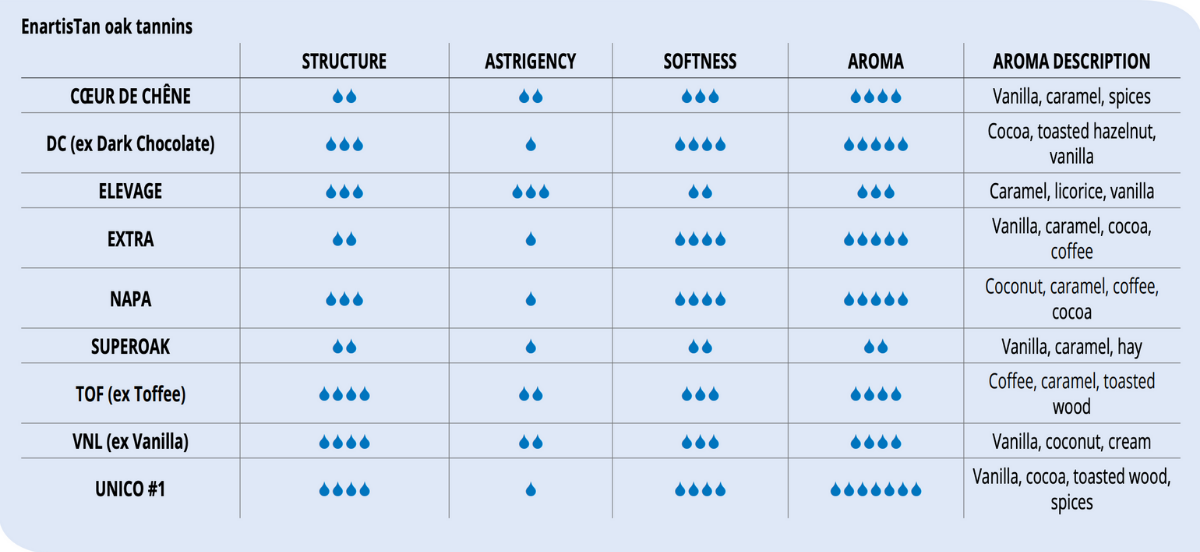Enartis News – Time to choose your oak program
Have you started to think about the oak program you want to use? This is the right period to run trials and chose: barrels or oak alternatives? What kind of oak alternatives? What level of toasting? Enartis offers a range of oak chips and soluble alternatives that give winemakers the ultimate control over their oak program to meet all your wine needs and expectations.
OAK ALTERNATIVES FOR FERMENTATION

OAK DUST
Main reasons for using oak alternatives during fermentation are:
• improve antioxidant protection;
• Improve colour stability in red wines;
• increase sensory complexity, volume, and softness;
• prevent reduction;
• mask herbaceous notes.
Because of its speediness in releasing aromatic compounds, tannins and polysaccharides, oak dust is the most popular alternative for this stage of vinification where contact time is the limiting factor.
However, the effectiveness of oak dust is largely overestimated. Tannin release starts only in presence of alcohol when fermentation has already started. This means that oak dust cannot provide antioxidant protection in the pre-fermentation stage, when it is needed. Moreover, oak dust is a solid with a huge surface that can adsorb pigments from the juice thus reducing wine overall colour intensity.
Enartis has developed the Incanto NC range, an alternative to oak dust.
The Incanto NC products are completely soluble formulations only containing the active molecules that make oak dust application during fermentation interesting:
• Ellagic Tannins, that act as catalyzers for tannin/ anthocyanin pigment formation via “acetaldehyde bridges”.
• Polysaccharides, that increase volume sensation, softens wine tannins, stabilize color and indirectly protect aromas from oxidation.
• Aromatic substances, derived from wood and toasting, that bring aromatic complexity to the final wine.
Incanto NC products used during fermentation offer the efficacy of oak dust while providing some advantages:
• precise dosage
• consistent quality
• no burnt or green wood notes
• no solids that could damage the mechanical parts of harvest machinery or render cleaning difficult
• ease of use for the winery staff
• zero loss of colour by solids absorption.
Since Incanto NC products simply contain the active molecules that can be extracted from wood, dosages are 10 times smaller than the usual oak dust ones.
This makes the job of winery staff easier and reduces waste.

OAK ALTERNATIVES FOR WINE MATURATION

CHIPS
According to the Organisation International de la Vigne et du Vin (OIV), chips are classified as oak fragments of at least 2 mm dimension. They are quite fast in releasing tannins and aromatic compounds therefore their application is very convenient when available time for ageing is limited to a few weeks.
Enartis Incanto Chips are produced from selected French and American toasted oak using a unique progressive heating process that results in a deep, homogenous toast. They are available with various toasting levels, named to indicate the expected aroma contribution. Incanto Chips measure 2-4 mm and provide best results after four to six weeks of contact.

OAK ALTERNATIVES FOR WINE REFINING

OAK TANNINS
Oak tannins have a very useful synergistic effect with oak alternatives. In fact, toasting oak turns lignin, cellulose, and hemicellulose into attractive aromatic
compounds but at the same time decreases wood tannin and polysaccharide content.
Especially when using chips and oak dust, the addition of tannins can complete the sensory effect of the oak treatment. Being soluble products, their effect is very
rapid, and their addition does not require further filtration treatment.
The EnartisTan range includes several tannins extracted from oak that can be used to refine wine throughout maturation until pre-bottling. They are produced from the same wood used for oak barrels. After seasoning and toasting, tannins are
extracted, concentrated and spray-dried to maintain the aromatic and sensory properties of oak. The combined use of yeast polysaccharides completes the “oak ageing” effect of tannins.
